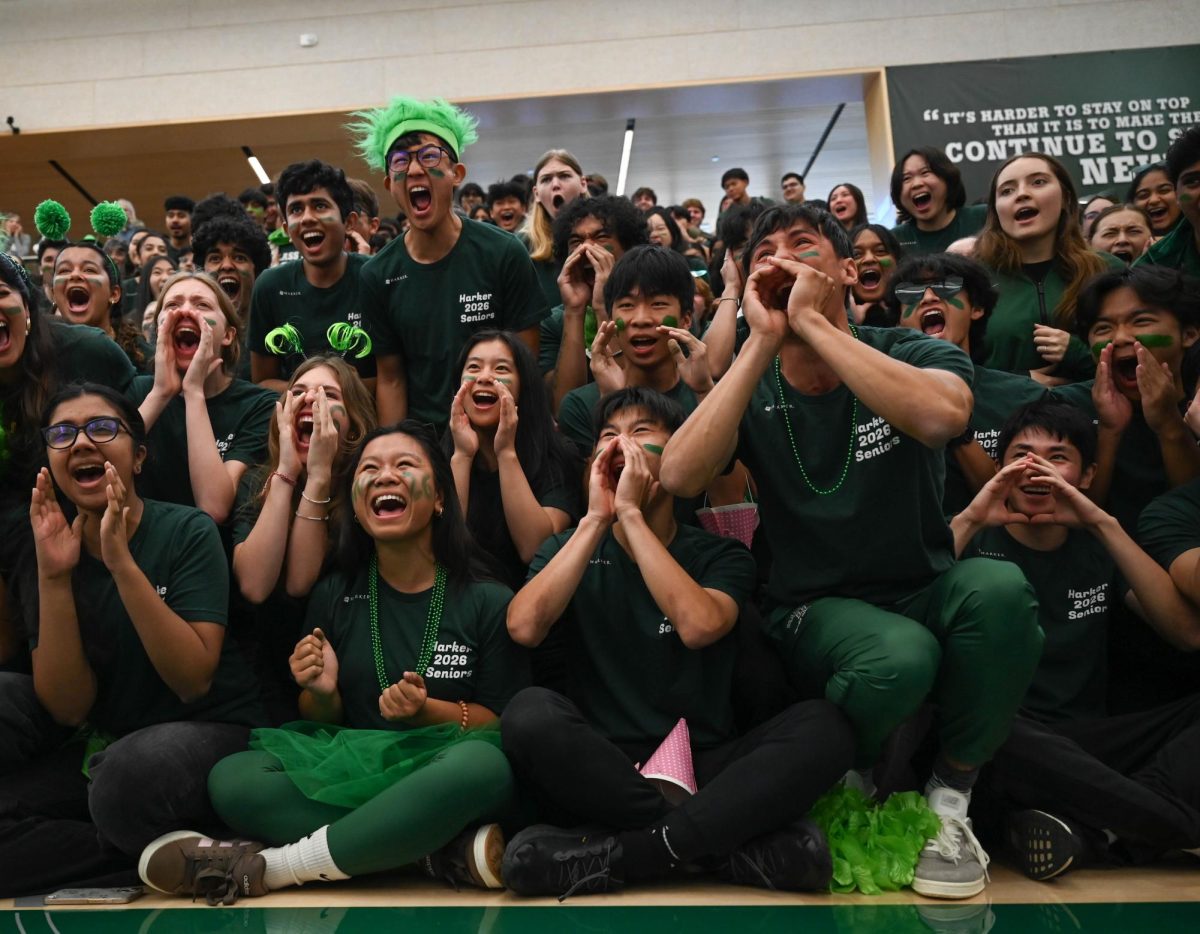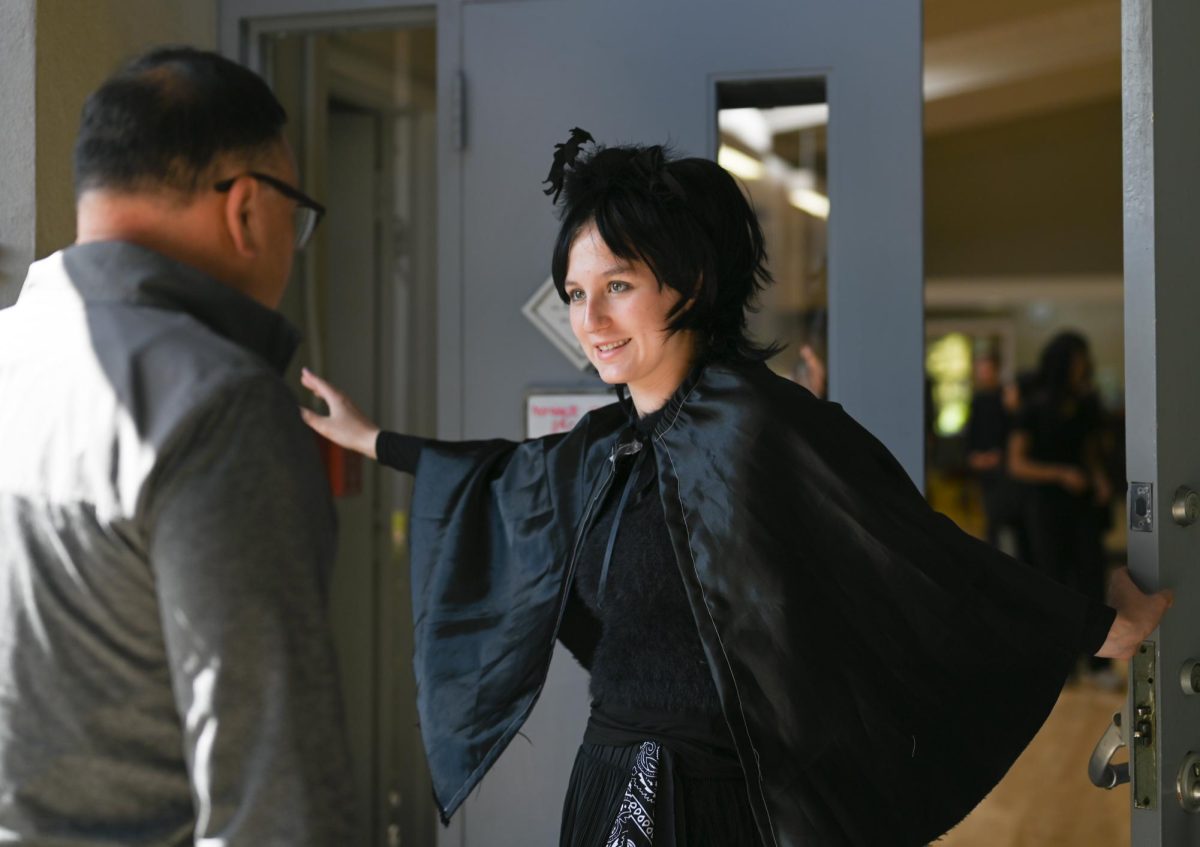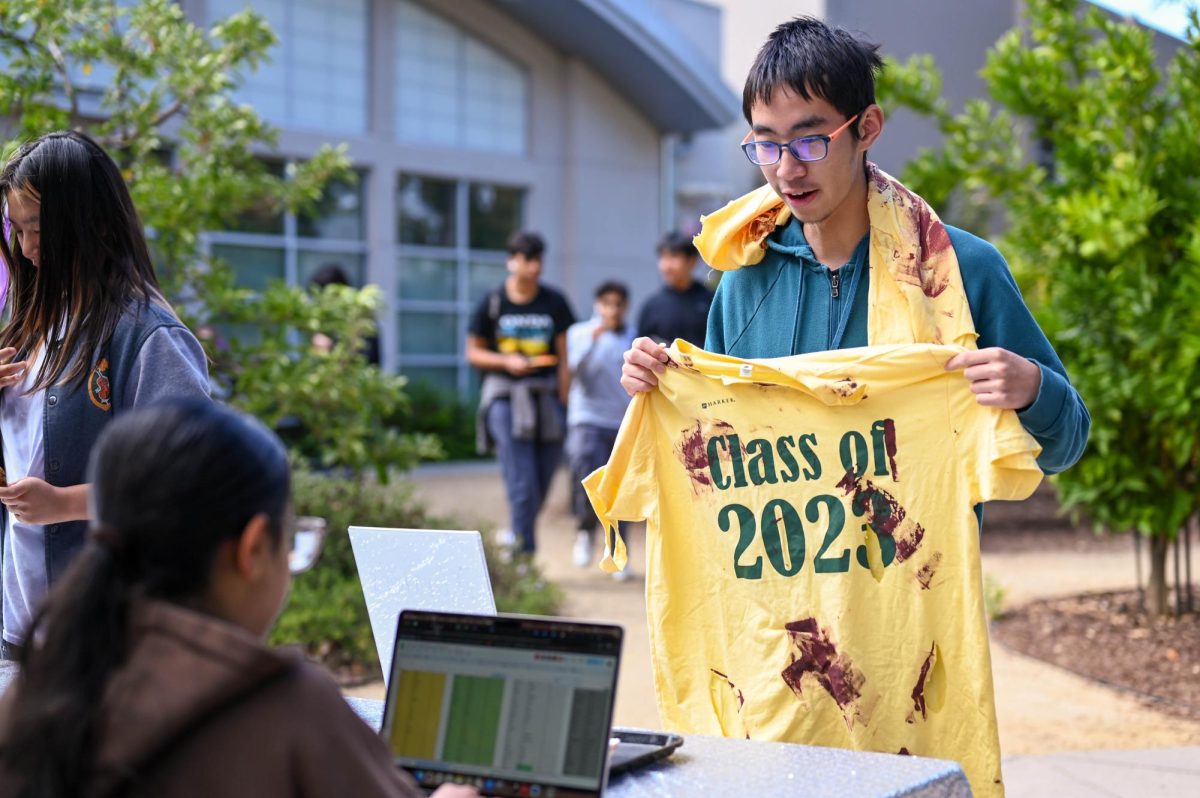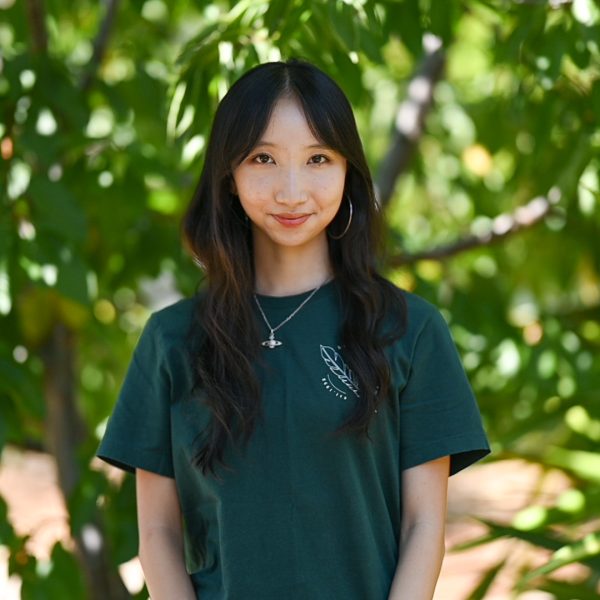Columbia University agreed to a set of policy reforms on Mar. 21 after the Trump administration cut $400 million in federal funding and issued a list of demands tied to the university’s handling of alleged antisemitism.
The Trump administration required stricter protest regulations, disciplinary action for violations and the adoption of a new definition of antisemitism, which considers certain cases of anti-Zionist or anti-Israeli criticism as antisemitism. They also required the university to place its Middle Eastern, South Asian and African Studies Department under external oversight and review admissions practices to ensure compliance with anti-DEI laws.
“Campus has been depressing and everyone’s been talking about it,” Columbia student Julie Shi (‘24) said. “In every one of my classes, my teachers have acknowledged it and offered their support outside of class if students need it. My midterm was cancelled, and I heard a few summer research positions were already pulled. No one knows what’s going to happen next.”
Federal officials cited the university’s alleged failure to adequately protect Jewish students from harassment during pro-Palestinian protests following the October 7 Hamas attack in Israel as grounds for the intervention.
“It comes down to the government suppressing conversation about the middle east,” Middle Eastern Student Association member Judi Abdelrazik said. “It’s really bad because it spreads misinformation and makes a lot of people feel uncomfortable and afraid to speak their minds, because they think they’ll be surveilled or even deported if they say something wrong.”
The federal government has rarely used funding cuts in response to campus speech, and the Supreme Court has recognized academic freedom as a constitutional value in the landmark Sweezy v. New Hampshire case in 1957. Still, in addition to Columbia, the Trump administration sent letters to 60 colleges threatening penalties if they failed to make their campuses safer for Jewish students.
“This would be a dangerous legal precedent to set, especially as other schools are currently on the list to be targeted,” senior Jason Shim, who will attend Columbia in the fall, said. “It means the federal government is going to have more power over what happens at private universities, and that is dangerous given how many Supreme Court cases we’ve already seen on the issue of free speech at public schools.”
Crackdowns on campus protest have also impacted immigrant students. Mahmoud Kahlil, a Columbia graduate student and lawful permanent resident, was arrested on Mar. 9 for leading pro-Palestinian protests last year. The Trump administration has since moved deport him, claiming he supported Hamas and terrorism.
Other students at Columbia have reported encounters with ICE agents and have been questioned for their political activity. Those who have not been directly affected have expressed concern that the administration’s approach is already threatening the climate for free expression.
“My teacher is not a U.S. citizen, she’s here on a visa, and she’s afraid to cancel class because she doesn’t want to risk losing her right to stay here and teach,” Julie said. “I know teachers at Columbia are handing out their personal emails to students because the university is notorious for monitoring what’s being sent through university email accounts, so professors are giving out personal contact information in case students need to reach them that way.”
“There are student reports of ICE on campus, and those haven’t been verified by the university,” Julie said. “But The New York Times has reported on cases where ICE has been hunting down students on Columbia and knocking on people’s door. People aren’t going to class because they’re afraid.”
Protesters argue that criticizing Israeli military and advocating for Palestinian human rights are forms of protected political speech. However, some Jewish students say the demonstrations have at times crossed into rhetoric or actions that feel threatening or exclusionary.
“The line between free speech and hate speech is an incredibly thin margin,” Jason said. “At some point, you want to defend the individual right for people to say anything they want — even if you don’t necessarily agree with it. But at the same time, it’s true that some speech can be injurious and harmful to society. Ultimately, where we draw that line has to be decided through deliberation, through a series of court cases.”
Free speech advocates say that Columbia’s decision to comply with the federal demands could embolden future government interventions in university affairs. As tensions escalate on campus, Jason hopes that the administration’s actions will restore order.
“I think we’re going to see a lot more escalation between Columbia University protesters and the administration itself before we reach a definite outcome, and that’s deeply unfortunate,” Jason said. “The administration is sort of inflaming those tensions, but ultimately I believe in the ability of Colombia to reach a solid balance between free speech and protecting the safety of its citizens of its students.”


















![“[Building nerf blasters] became this outlet of creativity for me that hasn't been matched by anything else. The process [of] making a build complete to your desire is such a painstakingly difficult process, but I've had to learn from [the skills needed from] soldering to proper painting. There's so many different options for everything, if you think about it, it exists. The best part is [that] if it doesn't exist, you can build it yourself," Ishaan Parate said.](https://harkeraquila.com/wp-content/uploads/2022/08/DSC_8149-900x604.jpg)




![“When I came into high school, I was ready to be a follower. But DECA was a game changer for me. It helped me overcome my fear of public speaking, and it's played such a major role in who I've become today. To be able to successfully lead a chapter of 150 students, an officer team and be one of the upperclassmen I once really admired is something I'm [really] proud of,” Anvitha Tummala ('21) said.](https://harkeraquila.com/wp-content/uploads/2021/07/Screen-Shot-2021-07-25-at-9.50.05-AM-900x594.png)







![“I think getting up in the morning and having a sense of purpose [is exciting]. I think without a certain amount of drive, life is kind of obsolete and mundane, and I think having that every single day is what makes each day unique and kind of makes life exciting,” Neymika Jain (12) said.](https://harkeraquila.com/wp-content/uploads/2017/06/Screen-Shot-2017-06-03-at-4.54.16-PM.png)








![“My slogan is ‘slow feet, don’t eat, and I’m hungry.’ You need to run fast to get where you are–you aren't going to get those championships if you aren't fast,” Angel Cervantes (12) said. “I want to do well in school on my tests and in track and win championships for my team. I live by that, [and] I can do that anywhere: in the classroom or on the field.”](https://harkeraquila.com/wp-content/uploads/2018/06/DSC5146-900x601.jpg)
![“[Volleyball has] taught me how to fall correctly, and another thing it taught is that you don’t have to be the best at something to be good at it. If you just hit the ball in a smart way, then it still scores points and you’re good at it. You could be a background player and still make a much bigger impact on the team than you would think,” Anya Gert (’20) said.](https://harkeraquila.com/wp-content/uploads/2020/06/AnnaGert_JinTuan_HoHPhotoEdited-600x900.jpeg)

![“I'm not nearly there yet, but [my confidence has] definitely been getting better since I was pretty shy and timid coming into Harker my freshman year. I know that there's a lot of people that are really confident in what they do, and I really admire them. Everyone's so driven and that has really pushed me to kind of try to find my own place in high school and be more confident,” Alyssa Huang (’20) said.](https://harkeraquila.com/wp-content/uploads/2020/06/AlyssaHuang_EmilyChen_HoHPhoto-900x749.jpeg)



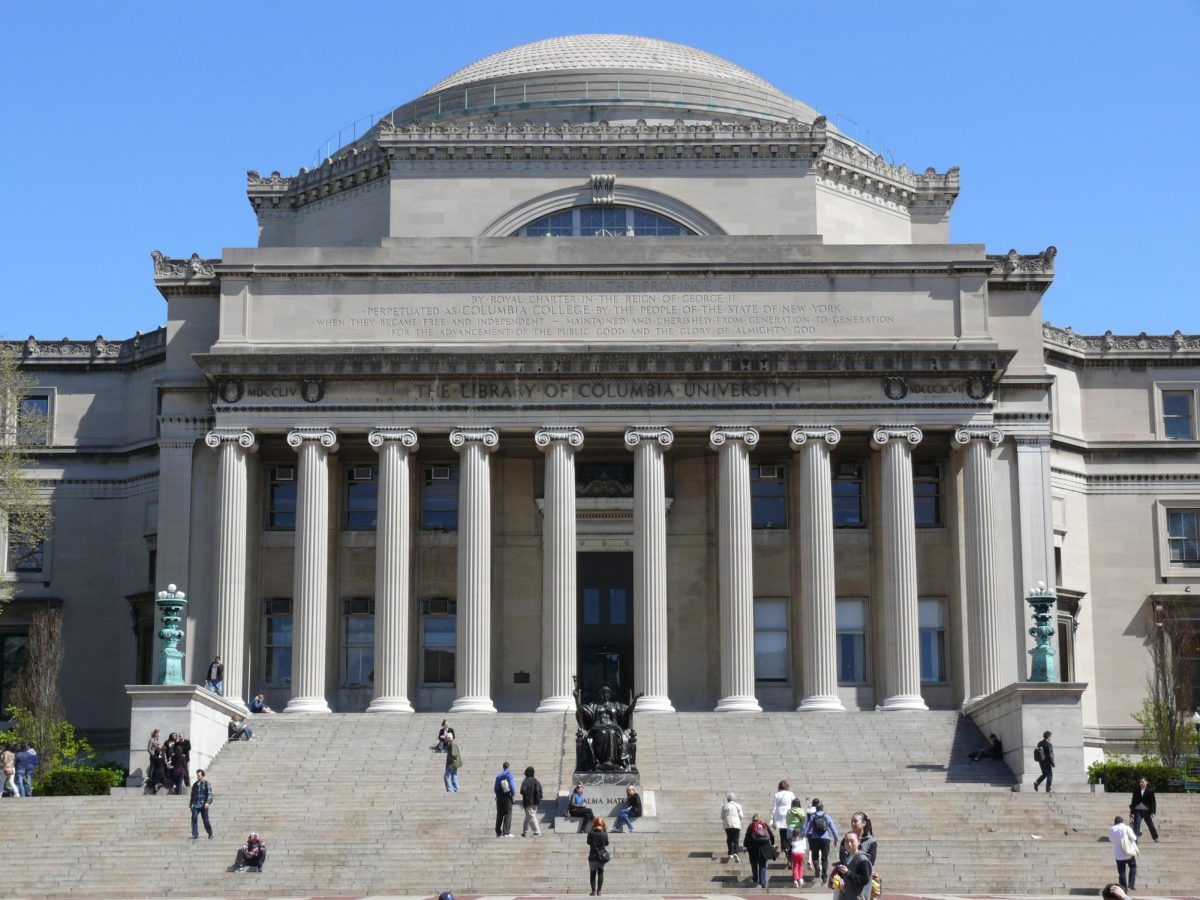
![LALC Vice President of External Affairs Raeanne Li (11) explains the International Phonetic Alphabet to attendees. "We decided to have more fun topics this year instead of just talking about the same things every year so our older members can also [enjoy],” Raeanne said.](https://harkeraquila.com/wp-content/uploads/2025/10/DSC_4627-1200x795.jpg)

